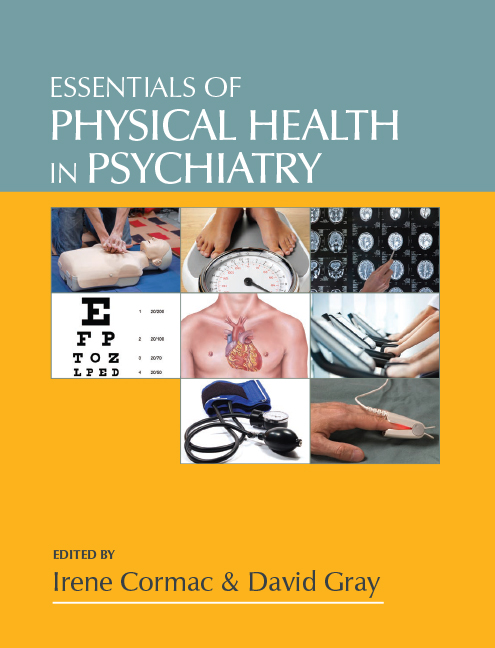Book contents
- Frontmatter
- Contents
- Foreword
- Foreword
- Preface
- List of figures
- List of tables
- List of boxes
- Notes on contributors
- Section I Improving physical health
- Section II Medical specialties
- Section III Psychiatric specialties and physical health
- 22 Alcohol
- 23 Drug misuse
- 24 Physical aspects of mental illness in children and adolescents
- 25 Forensic psychiatric services
- 26 General adult psychiatry
- 27 Intellectual disabilities
- 28 Liaison psychiatry
- 29 Old age psychiatry
- 30 Physical effects of eating disorders
- Section IV Medical emergencies and injuries
- Index
27 - Intellectual disabilities
from Section III - Psychiatric specialties and physical health
- Frontmatter
- Contents
- Foreword
- Foreword
- Preface
- List of figures
- List of tables
- List of boxes
- Notes on contributors
- Section I Improving physical health
- Section II Medical specialties
- Section III Psychiatric specialties and physical health
- 22 Alcohol
- 23 Drug misuse
- 24 Physical aspects of mental illness in children and adolescents
- 25 Forensic psychiatric services
- 26 General adult psychiatry
- 27 Intellectual disabilities
- 28 Liaison psychiatry
- 29 Old age psychiatry
- 30 Physical effects of eating disorders
- Section IV Medical emergencies and injuries
- Index
Summary
Introduction
Over recent decades there have been various influences on health services for people with an intellectual disability (PWID). Chief of these has been the move from institutional care – where annual check-ups by medical officers were common practice – to community care, delivered by general practitioners (GPs) and community disability teams (CIDTs); also known as community learning disability teams.
There has also been a dramatically increased life expectancy, especially for those with more severe intellectual disability. Between 2001 and 2021, the population of PWID aged over 60 is expected to increase by 36%. It can be expected that increasingly complex physical health problems will be seen, related to having an intellectual disability and being elderly.
Finally, there is better understanding of physical health problems in this group, as genetic research and epidemiological surveys have increased clinicians’ knowledge; they have also increased patients’ and carers’ expectations of better management of health problems.
Health inequality
People with an intellectual disability are some of the most vulnerable members of our society and are often dependent on others for their support. Generally, they are of low socioeconomic status, with only 17% in paid work; have poor coping strategies; and are often excluded from society as 5% are without family or friends. Moreover, 23% experience physical and 47% verbal abuse. These factors coupled, with difficulties in communicating needs and accessing resources, have led to significant health inequalities.
People with intellectual disability are 58 times more likely to die before the age of 50 than the rest of the population4 and overall mortality rates are 3 times higher for people with moderate to severe intellectual disability; they also have higher rates of preventable deaths. There are a number of factors, discussed below, that might contribute to this, including the possibility of clinicians missing physical health problems because they dismiss behaviours that could be communicating illness or pain as solely due to the intellectual disability (‘diagnostic overshadowing’). In some cases there may also be therapeutic negativism or nihilism, with clinicians pursuing neither investigations nor vigorous treatment, for a variety of reasons (Box 27.1).
- Type
- Chapter
- Information
- Essentials of Physical Health in Psychiatry , pp. 372 - 382Publisher: Royal College of PsychiatristsFirst published in: 2017



